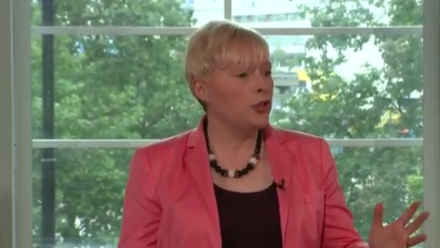
This article has been written by 14 Labour Party members: Honor Cohen, Ilford North; Emma O’Dwyer, Hackney North; Carli Harper, Greenwich and Woolwich; Katie Curtis, Hornsey and Wood Green; Estelle Hart, Gower; Melantha Chittenden, Ashford; Vic Langer, Hornsey and Wood Green; Chantel Le Carpentier, Eastleigh; Katrina Gilman, Telford; Ruth Meadows, Telford; Natacha Kennedy, Eltham; Deirdre Costigan, Ealing North; Amy Lame, Holborn and St Pancras; Katie Hanson, Hackney South and Shoreditch.
The Labour Party is the party of equality. It was past Labour governments that decriminalised homosexuality and introduced comprehensive legislative change on LGBT rights. The Labour Party has played a distinguished and major part in making the UK a more open and tolerant society on issues of sexuality and women’s rights over the past few decades.
Yet now, under political pressure, the debate within the Labour Party about its future direction is coarsened by misogyny aimed at women politicians and open homophobia directed at a leadership candidate.
The polarisation of political views in the party recently has degraded debate in both meetings and in the media. A partisan political approach has led to many to overlook, excuse and sometimes revel in prejudice expressed at meetings or in comments made on social media. This is destroying political debate.
The misogyny and homophobia that women politicians and party members experience on social media when people have political differences needs to stop – but the frequency with which it happens makes reporting and taking action an endless task. We have relatively few women in parliament and in local government who are out so, when high profile out women politicians are trolled online, degraded in meetings and receive death threats by email, increasing representation from this group can only be held back.
It is a labour movement tradition that the chair of a meeting has an obligation to ensure fair discussion and a safe place for all present whatever their gender, race, sexual orientation, disability or faith. When the pressure is on then it is even more important that these values are kept to. It is essential if politics is going to be truly diverse and open to all. The lesson of the strides forward in equality in both the Labour Party and the trade union movement in recent times is the need to be proactive and vigilant.
There is a worrying further development, namely the denial of prejudice. In the back and forth on social media, broadcast media and in the press there are repeated denials of any sexist or homophobic motive in criticism aimed at candidates and those who have openly taken a political side. This denial occurs even when clearly there is prejudice, and there is evidence that there is.
The homophobic comments which Tessa Jowell said were aimed at Angela Eagle and openly gay members of the Wallasey constituency party at a meeting in June have been widely denied. A significant media platform has been given to those who are denying this. The vice-chair of the CLP, Paul Davies, stated on Newsnight that members should have raised issues of homophobic comments and gestures at the meeting but he did not consider his role in creating an environment where people felt able to raise concerns. When people do not feel they can complain about intimidation because they felt intimidated, it is not an excuse, as Paul Davies states in the interview, it is a major failing in the culture that has developed in the party.
Instead of exposing prejudice, and showing it up for what it is, many in the media are riding the tide of post-truth politics. We saw where the denial of facts and the prioritising of opinions unrelated to the real world got us in the Brexit debate.
When this approach is applied to matters of equality we should all be worried about where it will lead. Letting prejudice and fear back in to a progressive political party will take us backwards as a society for sure.
It is ordinary LGBT people and women in public life who are now more fearful. It is us who will suffer the effects of this post-truth politics and, of course, progressive politics itself.




More from LabourList
‘Labour won’t stop the far right by changing leaders — only by proving what the left can deliver’
‘Cutting Welsh university funding would be economic vandalism, not reform’
Sadiq Khan signals he will stand for a fourth term as London Mayor